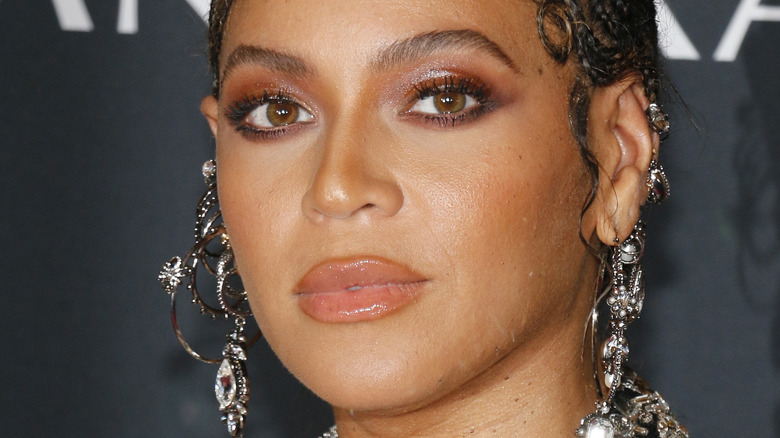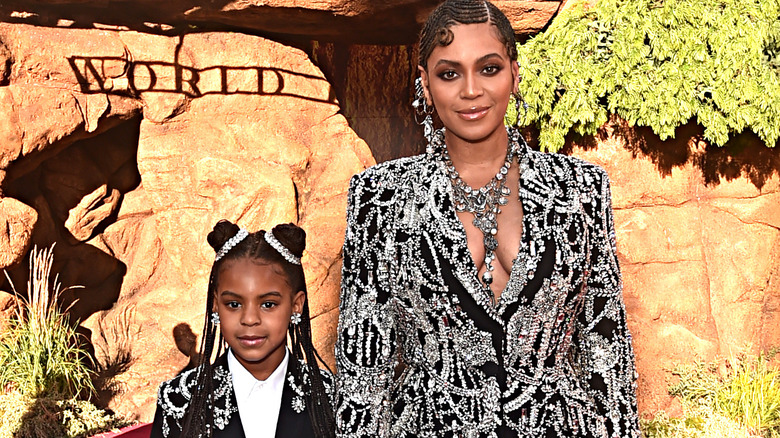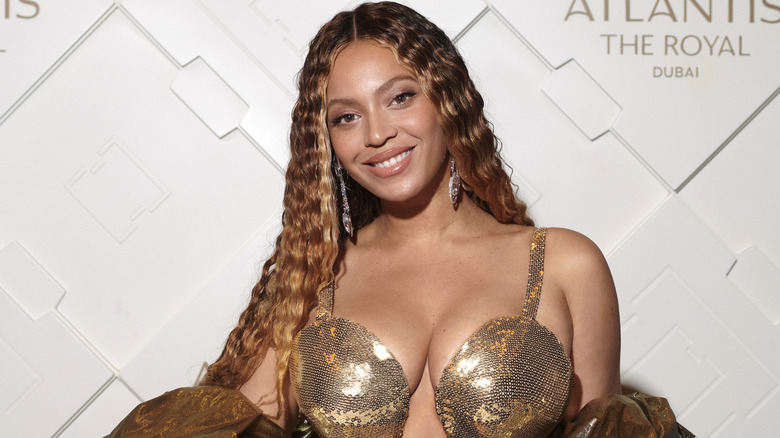Why Beyonce Had To Put Up A Fight To Trademark Blue Ivy's Name
Beyoncé has racked up more than her fair share of musical accomplishments — including recently becoming the most-awarded Grammy winner in history. However, Beyoncé has found success in several arenas outside of music. Over the years, the Texas native has dabbled in various industries, including acting and voice work. She's also proven to be quite serious about her business, which includes heading up fashion lines, such as House of Dereon, her successful Ivy Park collab with Adidas, and taking creative control of her marketing and tour rollouts. "To run my label and management company, to direct my films and produce my tours, that meant ownership, owning my masters, owning my art, owning my future, and writing my own story," the singer shared in YouTube's virtual commencement ceremony for the class of 2020.
Once Blue Ivy Carter was born in 2012, it was clear that Beyoncé wanted to forge a path for her daughter to build a brand one day as well. In 2012, the "Love on Top" hitmaker filed to trademark Carter's unique moniker. Given that any child of Beyoncé could potentially use their name as a powerful marketing tool, it makes sense that she'd want to be in control of how to capitalize on it, once the time came. However, Beyoncé actually had a hard time securing the trademark for Carter ... and the reason is super interesting.
Beyoncé faced 'opposition' from a small business owner
Beyoncé and Jay-Z wasted no time filing the application to trademark Blue Ivy Carter's name shortly after her birth. However, the famous parents ran into trouble when Veronica Alexandra, a wedding planner who owned Blue Ivy Events, opposed the stars owning the name "Blue Ivy." Apparently, it would have overshadowed Alexandra's business, and possibly would've forced her to change the name of her company, which she'd established in 2009.
Ultimately, Bey and Jay lost the first round after a judge ruled in Alexandra's favor, allowing her to retain her original name for her wedding business. "I knew this was going to be a bittersweet roller coaster," shared Alexandra with Rolling Stone. "If this wasn't going to work, I'd go after both of them. Like, 'Let's do it!' In my mind, I had some protective rights. There's no way by way of being a celebrity they should have entitlement [to the name]. Shame on them." However, Beyonce and Jay-Z could use the name "Blue Ivy" for non-event-related endeavors.
With that said, Alexandra alluded to being open to selling the power couple the name. "I work hard to make my living and none of that is going to change," shared Alexandra with BBC. "But if I was to strike some sort of ridiculous deal, then I think that would be a classic American story that would be worth projecting."
Beyoncé emerged victorious in legal battle over Blue Ivy's name
While it's clear that Beyoncé and Jay-Z have since allowed Blue Ivy Carter to slowly enter the entertainment business (efforts which have already garnered her a Grammy award), an interview that Jay-Z gave in 2013 suggests that stardom for Blue Ivy wasn't always the goal. At least not when it came to their decision to trademark her name. "People wanted to make products based on our child's name," he shared with Vanity Fair. "And you don't want anybody trying to benefit off your baby's name. It wasn't for us to do anything; as you see, we haven't done anything."
With that said, Bey and Jay eventually proved victorious in the quest to trademark the intellectual rights to Blue Ivy Carter's full name in 2019. In 2020, despite Veronica Alexandra opposing their quest for a second time, due to it bringing possible confusion to her company, the Trademark Trial and Appeal Board ruled in the famous couple's favor.



